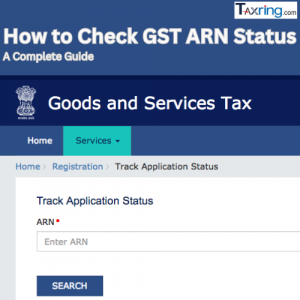 (1)-1920x700.png)
LLP Registration: Limited Liability Partnership Registration in India
What is an LLP?
A Limited Liability Partnership (LLP) is a versatile business structure that combines features of both partnerships and corporations. In an LLP, partners benefit from limited liability protection, similar to shareholders in a company, while enjoying the flexibility and simplicity of a traditional partnership.
Key Features:
- Limited Liability:Partners are protected from personal liability for the LLP’s debts and actions.
- Separate Legal Identity: The LLP operates as a distinct legal entity, capable of engaging in legal actions independently from its partners.
- Flexibility: It offers the operational flexibility of a partnership with the added protection of a company structure.
Introduced in India in 2008 under the Limited Liability Partnership Act, LLPs have gained popularity for their ability to protect partners' assets while adhering to more straightforward regulatory requirements compared to traditional corporations. This makes LLPs a reliable and adaptable choice for businesses of all sizes.
Features of a LLP Registration: Limited Liability Partnership (LLP)
1. Separate Legal Identity
An LLP is a distinct legal entity separate from its partners. This separation means the LLP can own assets, incur liabilities, and be involved in legal proceedings independently. The personal assets of the partners, such as their homes or savings, are protected from business debts and financial issues.
2. Perpetual Succession
LLPs enjoy perpetual succession, meaning the business continues to operate even if partners change or a partner passes away. This stability ensures that the LLP can maintain its operations without disruption, providing a reliable and consistent business environment.
3. Partnership Flexibility
LLPs offer great flexibility in their structure. You need at least two partners to start, but there’s no maximum limit. Both Indian and foreign individuals or entities can be partners, making it easy to form diverse and innovative partnerships.
4. Capital Requirement
Starting an LLP requires a minimum capital contribution of Rs. 10,000. Partners can agree on higher contributions if needed, allowing flexibility based on the business's needs and financial planning.
5. Flexible Management Structure
LLPs allow partners to decide their roles and responsibilities, providing a tailored approach to management. This flexibility helps assign tasks based on individual strengths and expertise, leading to efficient decision-making and adaptability to market changes.
6. Reduced Compliance Burden
LLPs face fewer compliance requirements compared to traditional companies. They do not need to maintain statutory registers, hold board meetings, or file annual returns with the Ministry of Corporate Affairs (MCA), freeing up time and resources for core business activities.
7. Tax Advantages
LLPs benefit from a simplified tax structure. They are not subject to dividend distribution tax or minimum alternate tax. Instead, profits are taxed based on each partner's income tax slab, offering potential tax savings and flexibility in tax planning.
These features make LLPs a popular choice for businesses seeking a blend of flexibility, protection, and simplified operations.
Advantages of a Limited Liability Partnership (LLP)
1. Limited Liability Protection
In an LLP, partners enjoy protection from personal liability for the business’s debts and losses. This means that if the LLP faces financial trouble, the partners' personal assets are generally safe, unless they acted wrongly or were negligent. This protection helps partners take business risks without worrying about losing their personal property.
2. Control and Flexibility
LLPs offer partners the freedom to set their own rules and make decisions together. The flexible nature of LLPs means partners can tailor the business operations to their needs and preferences, making it easier to work collaboratively and adapt to changes.
3. Cost-Effective Formation
Starting and running an LLP is affordable. There’s no need for a large initial investment, and LLPs benefit from lower costs, avoiding hefty stamp duties and expensive audits. This makes LLPs a great option for small businesses and startups, supporting entrepreneurs with a lower financial barrier.
4. Credibility and Reputation
Registering an LLP with the Ministry of Corporate Affairs (MCA) boosts the business’s credibility. Compliance with government regulations enhances the business’s image, building trust with customers and stakeholders. This formal recognition adds authenticity and strengthens the business's reputation.
5. Facilitates Growth
LLPs support business growth by allowing partners to raise funds from various sources, including banks and new partners. The structure also enables strategic collaborations and partnerships, creating new opportunities and markets. This flexibility helps businesses expand and adapt to market changes more easily.
Overall, LLPs offer a blend of protection, flexibility, and affordability that makes them an attractive choice for many businesses.
Disadvantages of an LLP
1. Limited Public Fundraising
LLPs cannot raise funds by issuing shares or getting listed on stock exchanges. This means they must rely on private sources like loans or contributions from partners, which can limit their growth and expansion opportunities.
2. Higher Tax Liability
LLPs generally face higher taxes compared to traditional partnerships. They must pay income tax on profits, which can impact overall profitability and financial planning.
3. Ownership Transfer Challenges
Transferring ownership in an LLP can be complex. Changes in ownership need approval from all partners and the Ministry of Corporate Affairs (MCA), which can lead to delays and added complications.
4. Risk of Disputes
Disagreements among partners can arise, especially if the LLP agreement doesn’t cover every possible situation. Regular updates to the agreement and clear guidelines can help reduce conflicts and ensure smooth operation.
LLP Registration Process in India
1. Obtain Digital Signature Certificate (DSC)
Get a DSC for secure online document submission. Designated partners must apply through government-approved agencies.
2. Apply for Designated Partner Identification Number (DPIN)
Each partner needs a unique DPIN. Complete Form DIR-3 and provide documents like Aadhaar and PAN cards. Only real individuals can be partners.
3. Name Approval
Choose a unique name and apply for approval using the RUN-LLP form on the MCA portal. Check for name availability and ensure it doesn’t resemble existing entities.
4. Incorporate the LLP
Submit Form FiLLiP to the Registrar to officially incorporate the LLP. This form includes applications for DPIN and payment of fees.
5. File LLP Agreement
File the LLP Agreement online using Form 3 within 30 days of incorporation. The agreement must be printed on Stamp Paper, with the value varying by state.
This streamlined process helps you set up an LLP efficiently while addressing key administrative steps.
Eligibility Criteria for LLP Registration in India
To successfully register an LLP in India, you need to meet these requirements:
1. Number and Residency of Partners
- Minimum Partners: At least two partners are required. These can be individuals or corporate entities.
- Residency:At least one partner must be a resident of India, having lived in the country for at least 182 days in the past financial year. The other partners can be either Indian or foreign, resident or non-resident.
2.Qualification and Disqualification of Partners
- Partners should not be disqualified under the LLP Act, 2008, or any other law. This means they should not be undischarged insolvent, convicted criminals, or of unsound mind.
3. Uniqueness of LLP Name
- The name of the LLP must be unique and not resemble any existing LLP, company, trademark, or domain name.
4. Lawful Objectives
- The objectives of the LLP must be legal and align with public policy or the interests of India.
Meeting these criteria ensures your LLP registration complies with the LLP Act, 2008, and helps in establishing a legitimate business entity.
Required Documents for LLP Registration
1. Personal Identification:
- PAN card of partners
- Aadhaar card, voter ID, passport, or driving license of partners
- Passport-sized photographs of partners
2. Address Verification:
- Proof of address for each partner, such as a bank statement, utility bill, or rent agreement
3. Registered Office Proof:
- Proof of the LLP’s registered office, like an electricity bill, property tax receipt, or rent agreement
- No Objection Certificate (NOC) from the landlord
4. Digital Signatures
- Digital Signature Certificate (DSC) for partners
- Director Identification Number (DIN) for partners
5. Partnership Agreement:
- Consent letter from partners
- LLP name reservation form (Form RUN-LLP)
- LLP incorporation form (Form FiLLiP)
- LLP agreement
Make sure all documents are accurate and up-to-date for a smooth registration process.
Costs of LLP Registration
1. Digital Signature Certificate (DSC): ₹500-1000 per partner
2. Director Identification Number (DIN): ₹500 per partner
3. LLP Name Reservation Fee:₹200
4. LLP Incorporation Fee: ₹500-2000, depending on capital contribution
5. Stamp Duty for LLP Agreement: Up to ₹2000, depending on state and capital contribution
6. Professional Fees: ₹5000-10000, based on complexity
Regulatory Framework for LLPs in India
1. Annual Compliance:
- File annual returns using Form 11 (Annual Return) and Form 8 (Statement of Account & Solvency) with the Ministry of Corporate Affairs (MCA).
2. Changes in LLP Agreement:
- Notify MCA about any changes in partners, capital, or business activities by filing the relevant forms.
3. Audit Requirements:
- LLPs exceeding certain turnover limits must undergo statutory audits and submit audited financial statements to the MCA.
4. Tax Compliance:
- File income tax returns and comply with Goods and Services Tax (GST) if turnover exceeds specified limits.
5. Penalties for Non-Compliance:
- Non-compliance can lead to penalties or even the LLP being struck off the register by the MCA.
Conclusion
Registering an LLP in India is a straightforward process that can be completed in 15-20 working days. LLPs offer limited liability protection, flexibility, and tax benefits, making them ideal for small and medium-sized businesses, professionals, and startups. However, consider the potential drawbacks, such as limited fundraising options and higher risk of disputes, before proceeding.
Share this guide with others to help them understand the LLP registration process. For further assistance, consider consulting with a tax expert.
Read Also




